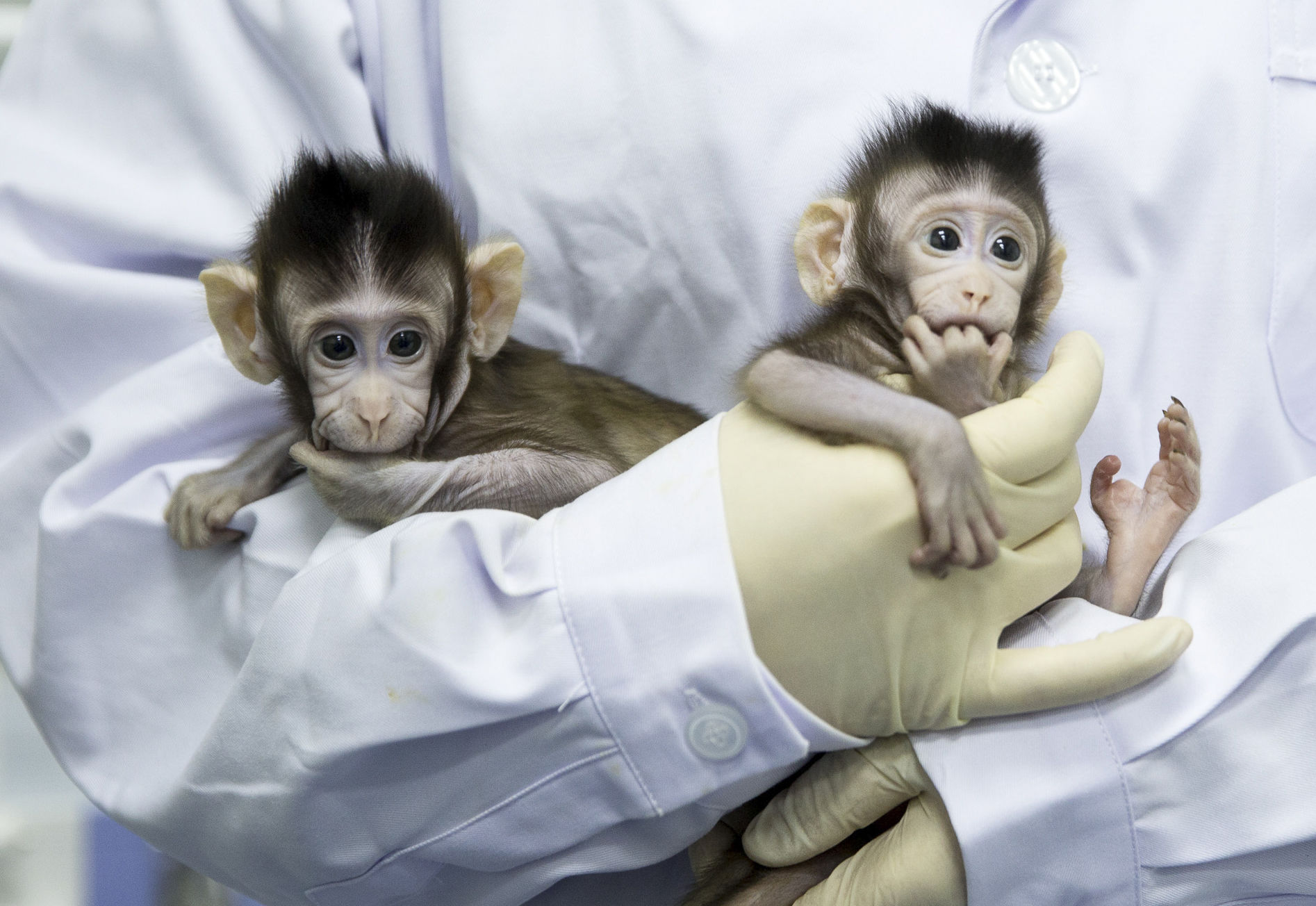Create a free profile to get unlimited access to exclusive videos, sweepstakes, and more!
Five genetically-altered monkeys (with inherited sleep disorders) cloned in China

Almost a year to the date that a pair of baby monkeys were cloned in China, five genetically-altered monkeys have been cloned at the Institute of Neuroscience of Chinese Academy of Sciences in Shanghai. A pair of articles in the National Science Review documents the birth of the customized gene-edited macaque monkeys and the process in which they were cloned.
Science China Press released a video showing the monkeys in an incubator. It’s all very cute.
But here’s where things get less Star Wars: Episode II – Attack of the Clones and more Star Trek: The Eugenics Wars. A news release announcing the breakthrough reveals that these gene-edited monkey clones inherited a range of circadian rhythm disorders from the donor monkeys, including reduced sleep time, elevated night-time locomotive activities, increased anxiety and depression and even schizophrenia-like behaviors.
However, the researchers insist this is all being done in the name of finding treatments for these disorders and following strict international guidelines for animal research. “Circadian disruption is a risk factor for metabolic, psychiatric and age-related disorders, and non-human primate models could help to develop therapeutic treatments,” said the abstract for one of the articles.
“Disorder of circadian rhythm could lead to many human diseases, including sleep disorders, diabetic mellitus, cancer, and neurodegenerative diseases,” said Hung-Chun Chang, senior author and investigator of the Chinese Academy of Sciences Institute of Neuroscience in a statement. “Our … monkeys thus could be used to study the disease pathogenesis as well as therapeutic treatments.”
Qiang Sun, Director of ION's Nonhuman Primate Research Facility, added: "We believe that this approach of cloning gene-edited monkeys could be used to generate a variety of monkey models for gene-based diseases, including many brain diseases, as well as immune and metabolic disorders and cancer."
Mu-ming Poo, a co-author of both studies, who directs the Institute of Neuroscience and helps supervise the project, said in a statement: “This line of research will help to reduce the amount of macaque monkeys currently used in biomedical research around the world.”
The researchers said they expect more macaque clones carrying disease-causing gene mutations to be generated in the future. So, hooray, science…?
This announcement comes almost exactly one year ago that a pair of baby monkeys (Zhong Zhong and Hua Hua, pictured above) were created at the Chinese Academy of Sciences via the same cloning technology used to give birth to Dolly the sheep back in 1996.














